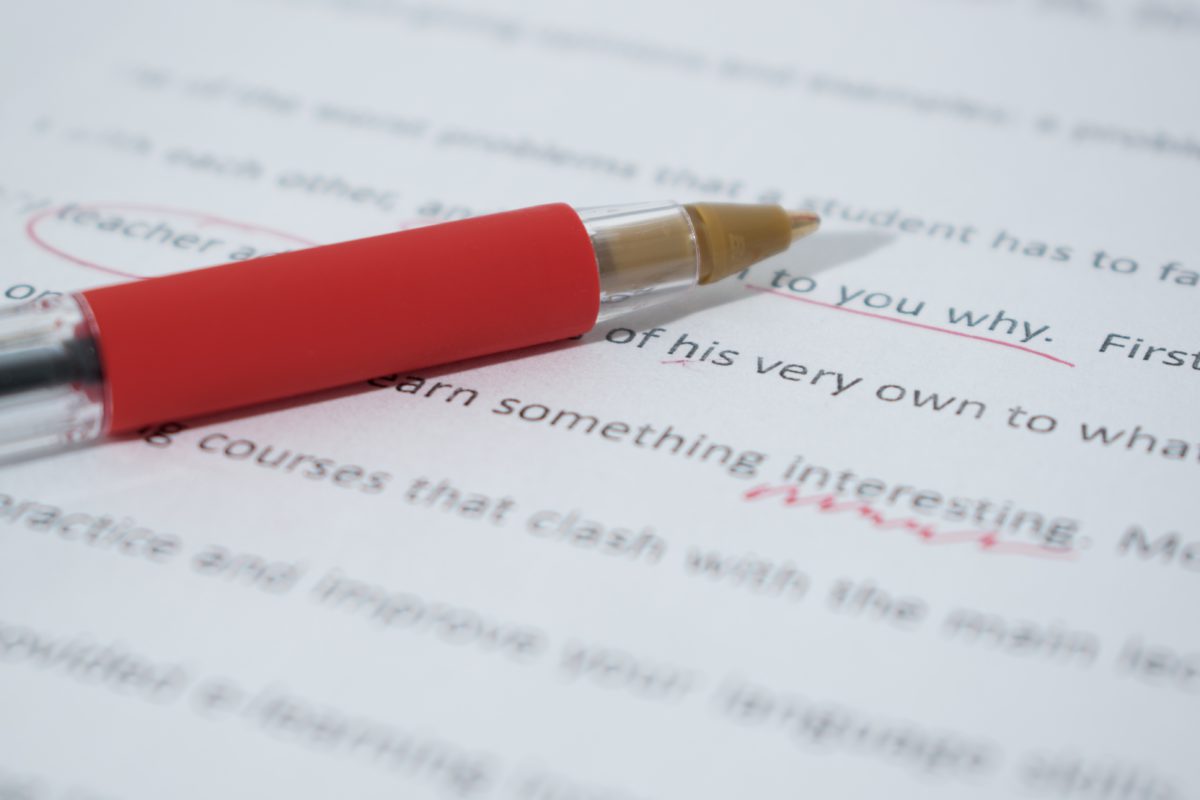
4 Mistakes Everyone Makes In Essays
- April 20, 2017
- Martine Fykin
1) The Word Count
You’re probably used to doing essays for your GCSEs, where you would ask your teacher how long it would have to be and they would say something like, “about 2 and a half pages”.
When you get to writing university essays, everything changes. Your lecturer tells you the limit might be 2000 words for your first essay. So you automatically think, ‘well, that’s great, I would’ve never written more than that anyway’. Wrong.
You have two problems you may face with word counts. You’ve got the people who always go over the word count, and the people who can’t get anywhere near it. Many universities apply a kind of ‘penalty’ if either of these happens. A pretty common one is your mark will be reduced by 10% if you’re 10% over or under the word limit.
When you’ve worked super hard on an essay, the last thing you want to do is lose marks over something you can control. Don’t be the person who adds in irrelevant facts or elongates their sentences because their word count is too low.
On the other hand, you also don’t want to lie to your lecturers that your word count is lower than it actually is, just because you think you can’t cut it down. They WILL figure it out. When you’re a lecturer who has had to read through 100 essays, it’s pretty easy to see when someone has written too much or too little.
Your best bet is to write an essay and forget about the word count, which will probably end up with you being over it. Then when you come to reading it through, delete any repeated points, unnecessary words or irrelevant facts. Focusing on if you’ve answered the question is the best way to make sure you have a good word count.
2) Starting Too Late
So, this one is pretty obvious. There are tons of students who know how long they have to do an essay, and then start it the day before or maybe even pull an all-nighter (you’re all guilty of it!).
This is such a big mistake when writing essays. You are given a deadline day normally weeks and sometimes months in advance. The reason lecturers do this is so that you have time to do all your other essays, but mainly so you can plan properly.
If you start an essay too close to the deadline you’re going to be in panic mode. If you’re panicking, it’s unlikely you’ll produce your best work. You need to at least give yourself a chance to get the grade you want by starting early.
The best way to beat this one is to plan. You’ll be given multiple essays to do at one time during university so learn to organise your workload. Don’t just do the essays in the order they were given.
If you know one requires more words or it’ll be more difficult to write, then you need to prioritize it. When people see you in the library at 3am the morning of the deadline day, I’m pretty sure everyone can figure out you procrastinated.
3) Proof Reading
This mistake is simple. Proof reading… or more to the point – NOT proof reading.
Sure, Microsoft Word has a spell check tool, however that’s not necessarily what you are proof reading for. Microsoft isn’t always going to correct your spellings the way you want it to. If you’ve spelt a word so bad in the first place, it might correct it to a completely different word.
Also, the main thing you’re proofreading for is grammatical errors. Does your essay make sense? The only way to know is to read it through several times. Try reading it a few times a day leading up to when you’re going to submit it.
A really good tip is to get someone else to proof read it too. Sometimes if you read your work too many times your brain skips over mistakes and a fresh pair of eyes really helps. You’re also proof reading for repeated facts.
Your lecturer is bored of reading essays as it is, if you labour on a point so much you’ve just repeated yourself, they’re not going to be happy. So proof reading several times will stop you losing marks for silly errors.
4) Waffle
Yes, waffle is a mistake everyone makes in essay writing when they first start university. We’ve not talking about the waffle you put maple syrup on (although, if we were that would probably make this more exciting). I’m talking about the kind of waffle that means you drag out sentences for absolutely no reason.
‘Waffling’ as it’s so-called, is normally something those students we were talking about earlier (the ones who go over the word count), know oh-so much about. If you’re an exaggerator in real life, you need to leave that side of you behind when writing essays.
When proofreading your essays, be sure to switch your ‘waffle radar’ on. When making a point about something, check you’re not labouring on it too much. Make your point then move on to something else. You don’t need a whole paragraph to make one statement.
If you read your work back through and think there’s any unnecessary words then just cut them out. If you’re trying to increase your word count, waffling isn’t the way to do it. You should be finding new things to comment on, not just adding extra comments on your existing points.
Simply put, waffling is any sentence that is unneeded or already stated in a different way. If it doesn’t need to be there, take it out. You don’t get extra marks for babbling on.
Bear all of these mistakes in mind when writing an essay. Small changes to your work can make a big difference to your grade.
Martine (@MartineFykin) is a psychology graduate and an aspiring teacher from Anglia Ruskin University. Living in Essex she has a passion for writing, fitness and travelling the world. Check out her LinkedIn here.
Inspiring Interns is a graduate recruitment agency which specialises in sourcing candidates for internships and giving out graduate career advice. To hire graduates or browse graduate jobs London, visit their website.







